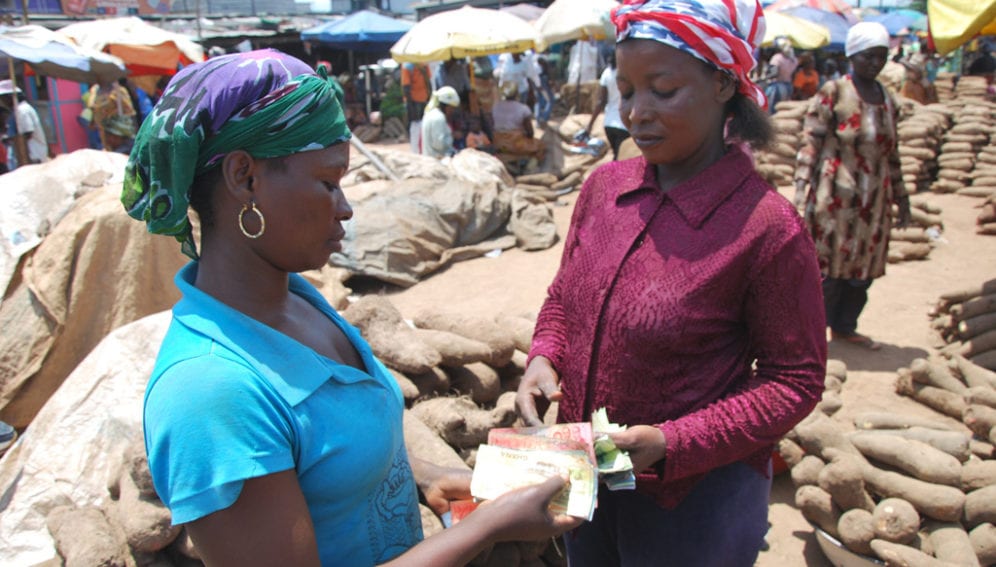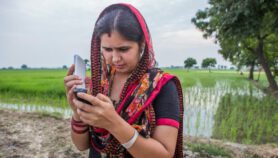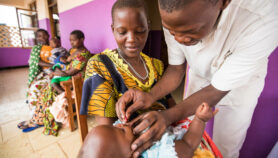Send to a friend
The details you provide on this page will not be used to send unsolicited email, and will not be sold to a 3rd party. See privacy policy.
A revamped data agenda is needed to deliver robust GDP statistics for Sub-Saharan Africa, says Morten Jerven.
The development indicator with the greatest influence on policy and public debates is GDP (gross domestic product). It is used to rank countries' progress and wealth — but its interpretation and measurement are tricky.
For Africa, in particular, countries' economic development statistics are misleading as a result.
The difficulties in accurately measuring GDP are not restricted to the developing world, but, all other things being equal, poorer economies are likely to have lower-quality statistics.
Lack of data
A poorer economy will have relatively fewer available resources to fund an official statistics office.
The quality and availability of data, and therefore the cost of collecting robust statistics, depend on individuals and companies keeping formal records of economic activity or filing taxes — which are less likely in poorer countries. This information is only occasionally collected in surveys.
“Our knowledge about growth in African economies is limited.”
Morten Jerven
While defining what constitutes economic activity is a massive problem for measuring GDP in the developing world, it is dwarfed by the difficulty of actually recording economic transactions.
In Sub-Saharan Africa, this basic problem is aggravated by some historical factors. For example, most countries on the continent have not been collecting taxes on property and incomes, but on goods crossing borders — therefore states have had weak incentives to monitor production and domestic economic transactions.
And although African states' statistical capacity was greatly expanded in the late colonial and early postcolonial period, it suffered greatly during the 1970s economic crisis.
Statistical offices were neglected in the decades of liberal policy reform that followed. This period of 'structural adjustment' in the 1980s and 1990s meant governments had to account for more with less: informal and unrecorded markets in food and services grew, while public spending was curtailed.
Out-of-date benchmarks
As a result, our knowledge about growth in African economies is limited.
Anyone can download GDP data for 2012 from the World Bank covering 47 Sub-Saharan African countries and then rank and compare them. But due to the uneven application of methods and poor availability of data, any comparisons will be highly misleading.
This was made clear in 2010 when Ghana updated data and methods that had been unchanged since 1993 to publish a new estimate: switching to using 2006 rather than 1993 as the benchmark year for calculating growth almost doubled its GDP.
As for any index, when the base year is out of date, GDP estimates become unreliable as they may no longer reflect a sizeable part of the economy.
It is widely expected that when Nigeria revises its GDP data, probably next year, it may surpass South Africa as Sub-Saharan Africa's largest economy. The problem is that not all countries in the region use a recent base year.
The International Monetary Fund recommends updating it every five years, but countries struggle to do so. Indeed, by that rule, Ghana's GDP estimate is already out of date.
Expanding country-level expertise
What to do about unreliable GDP estimates?
The message for data users is to question your evidence. And data disseminators, such as the World Bank with its World Development Indicators, need to label their data correctly and clearly acknowledge knowledge gaps. A great deal of information sold as data is only weak guesses and projections.
But the biggest challenge is to invest in countries' capacity to produce better data.
In the macro analysis of growth and poverty, the distance between the analyst and the economy being studied has increased since the 1990s, when downloadable data sets became popular. To some extent, this practice has replaced country experts, who tended to be better informed about gaps in country-level statistics.
Improving this state of affairs will require a change in scholarly methods, expanding country-level expertise — such as strengthening domestic universities and think-tanks — as well as training journalists to report on economic development.
While funds have been available for statistical offices, partly due to the Millennium Development Goal (MDG) agenda, they have tended to divert resources from economic statistics towards social statistics more relevant to MDG monitoring.
Moreover, these are generally ad-hoc funds that support data collection for a donor-funded project. In practice, many statistical offices operate as a data-collection agency for hire, not an office that provides objective information needed for day-to-day politics or policy planning.
This system means that donors distort data production rather than expand statistical capacity. And it stretches resources for manpower and infrastructure.
The problem here is lack of coordination: many countries have national strategies for statistical development, but, more often than not, donors break with these plans' priorities and demand the data they need, thus adding to the fragility of statistical offices under increasing pressure.
Put monitoring first
Policy debates can drive capacity building too.
On a global level, perhaps the most visible commitment to results-based and evidence-driven policy was the adoption of the MDGs. But progress in achieving them has been difficult to measure.
In retrospect, it was naïve to require this extent of measurability without a systematic understanding of how data can and should be generated by weak statistical systems.
There is a lesson here: statistical capacity must become central to discussions about post-2015 development targets.
In the MDG discussions, for example, targets were identified first, but less thought was given to where the data needed to monitor them should come from.
With future goals, it may be useful to turn the initial question around: rather than asking what kind of development we should target, the question should be what kind of development can we monitor?
A new agenda for development data in Sub-Saharan Africa is required — one that puts local demand, incentives and applicability at the centre.
Morten Jerven is associate professor at Simon Fraser University in Vancouver, Canada. He has published widely on African economic development including a recent book, Poor Numbers. His research is published on mortenjerven.com and he can be reached at [email protected]














